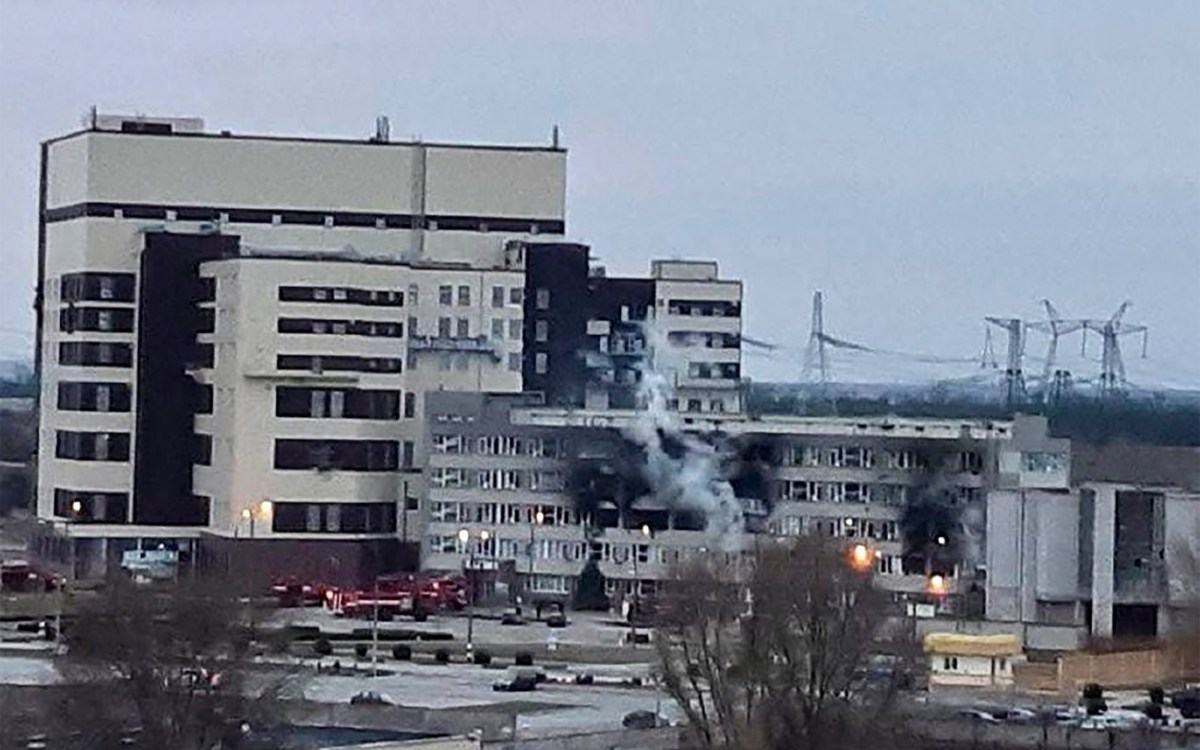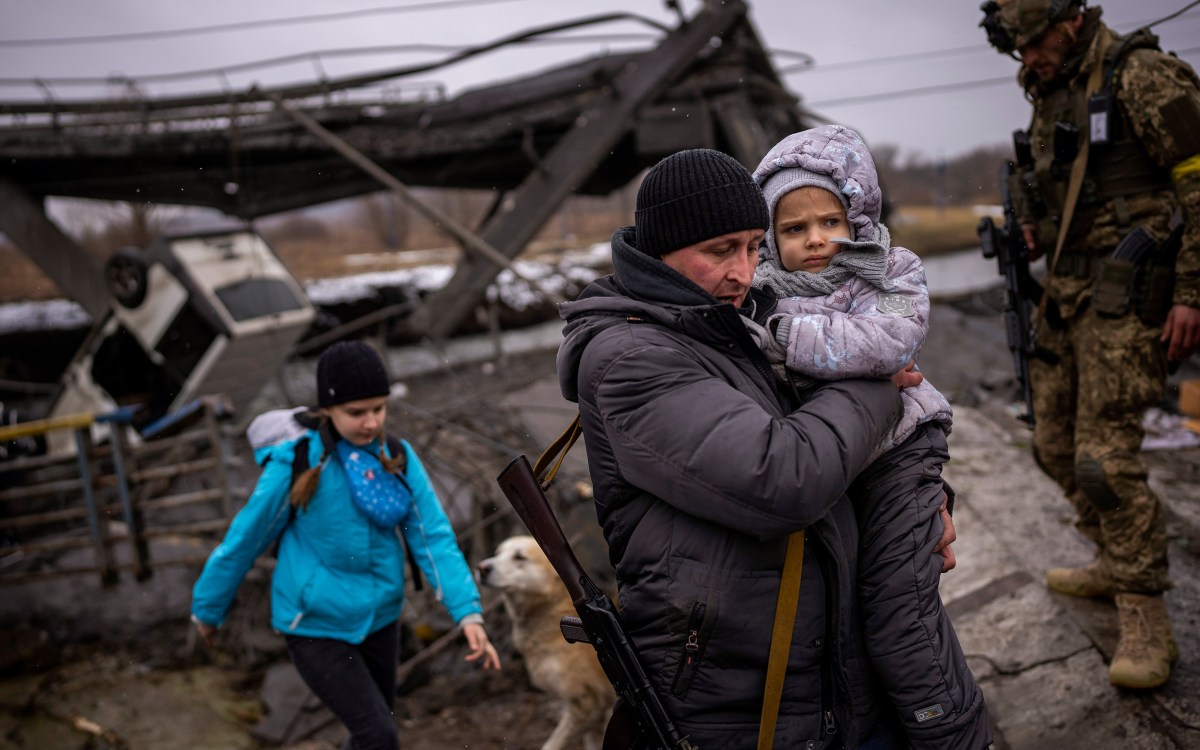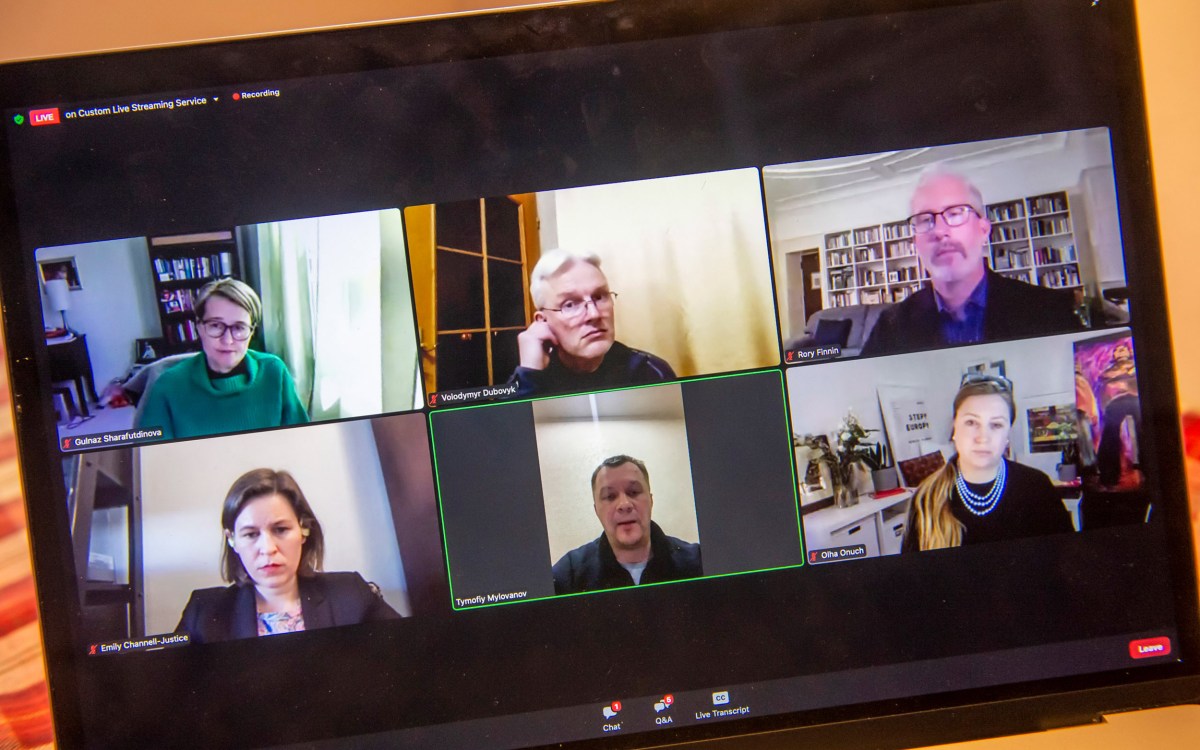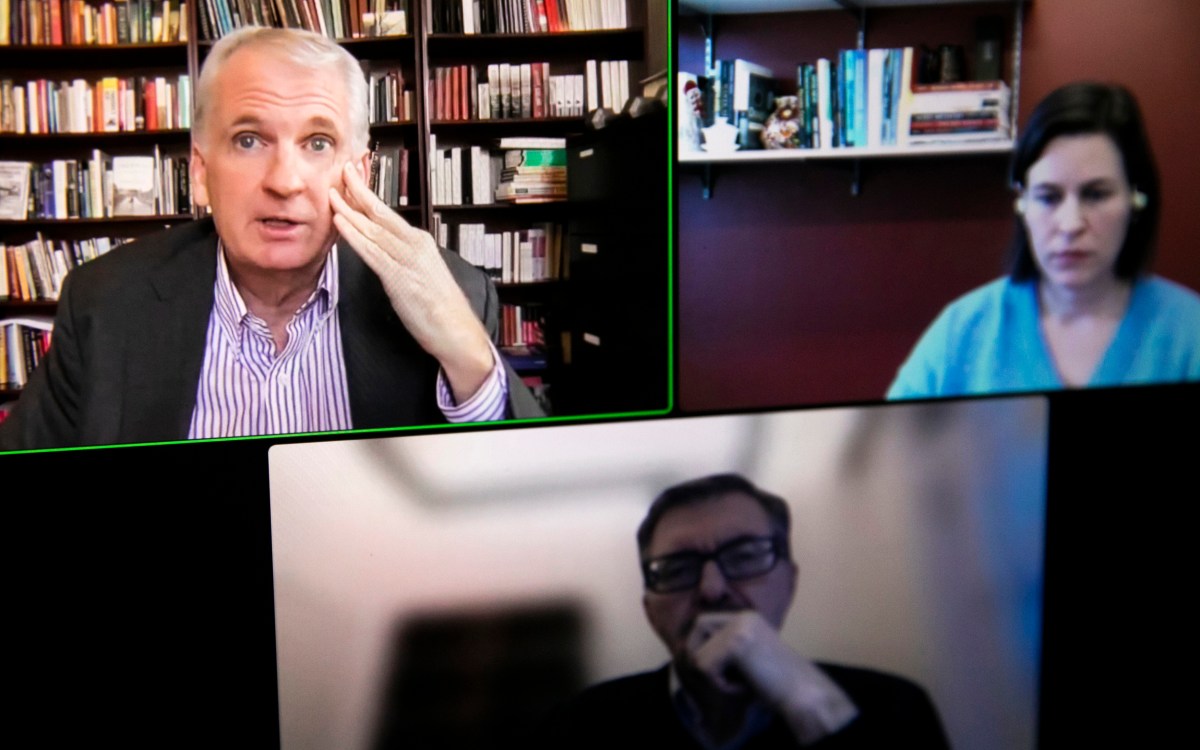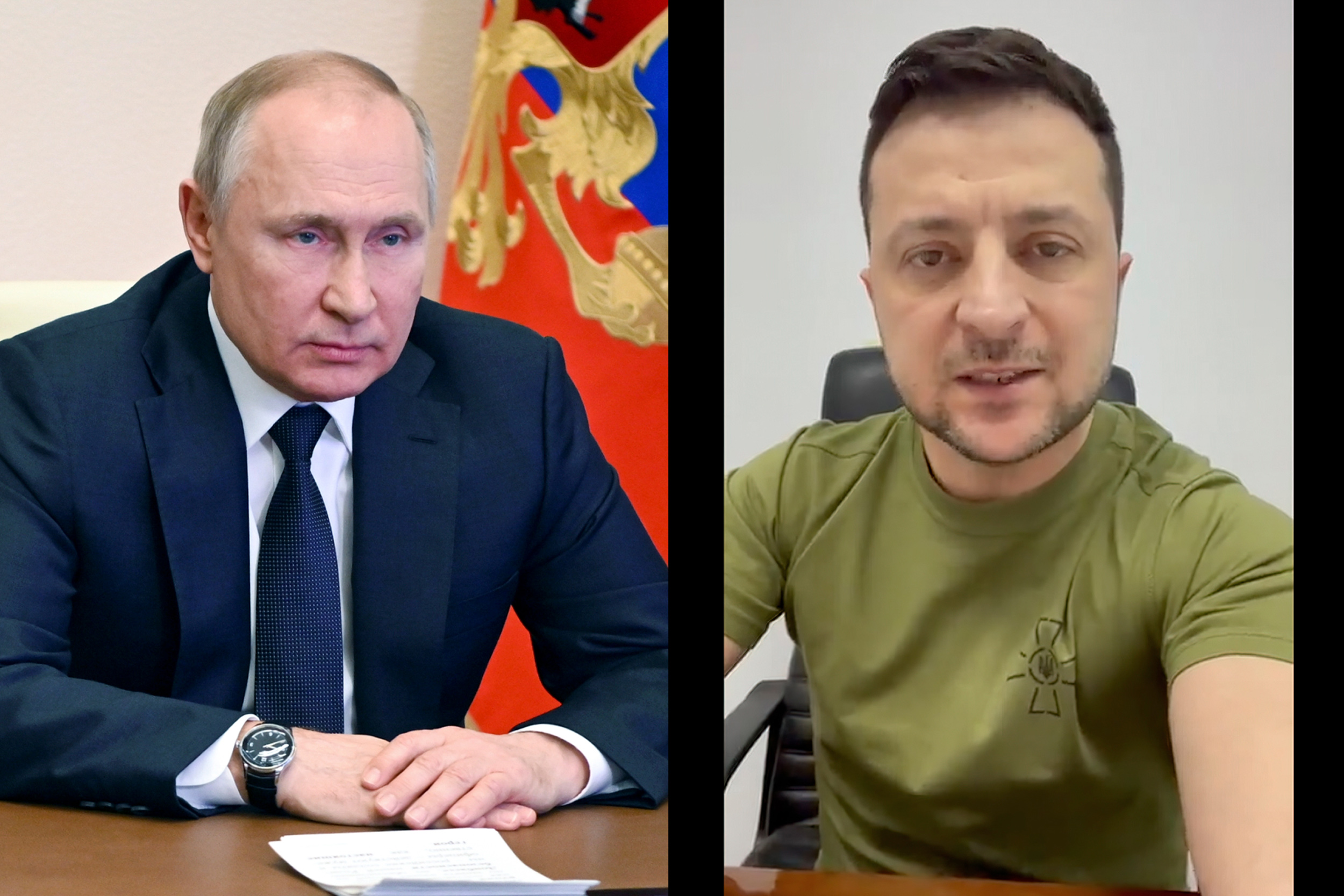
Russian President Vladimir Putin chairs a Security Council meeting and Ukrainian President Volodymyr Zelensky communicates via his Twitter feed.
Andrei Gorshkov, Sputnik, Kremlin Pool Photo via AP; Ukrainian Presidential Press Office via AP
Putin’s iron fist vs. Zelensky’s moral clarity
Historian Nancy Koehn, author of ‘Forged in Crisis,’ compares wartime leaders and the broader messages they send to the world
Since Russia’s invasion of Ukraine, President Volodymyr Zelensky, a former actor and comedian, has become a national hero, leading his country’s resistance against superior forces and firepower. By contrast, President Vladimir Putin of Russia has been denounced around the world for inflicting death, destruction, and displacement on millions of Ukrainians. We asked the historian Nancy Koehn, James E. Robison Professor of Business Administration at Harvard Business School and author of “Forged in Crisis: The Power of Courageous Leadership in Turbulent Times,” to weigh in on these two very different leaders. The interview has been edited for clarity and length.
Q&A
Nancy Koehn
GAZETTE: How would you assess Putin’s leadership during this war?
KOEHN: It appears consistent, determined, focused, and harnessed to cruel, terrible ends. It is being met with domestic resistance in parts of Russia, but it is hard to know how extensive this opposition is, given state control of so many information sources and Putin’s determination to arrest protesting citizens. For many years, I have studied leaders who pursue worthy missions against great odds. All of these people — from Ernest Shackleton to Rachel Carson to John Lewis — used their emotional awareness and self-discipline to help achieve their aims. I don’t know nearly enough to assess Putin’s emotional intelligence, but he has presented himself as unstoppable and, at the same time, completely untethered by any conception of decency. This has been a formidable — and fearsome — means of showing up, and, thus far, it has garnered real influence in affecting the course of events.
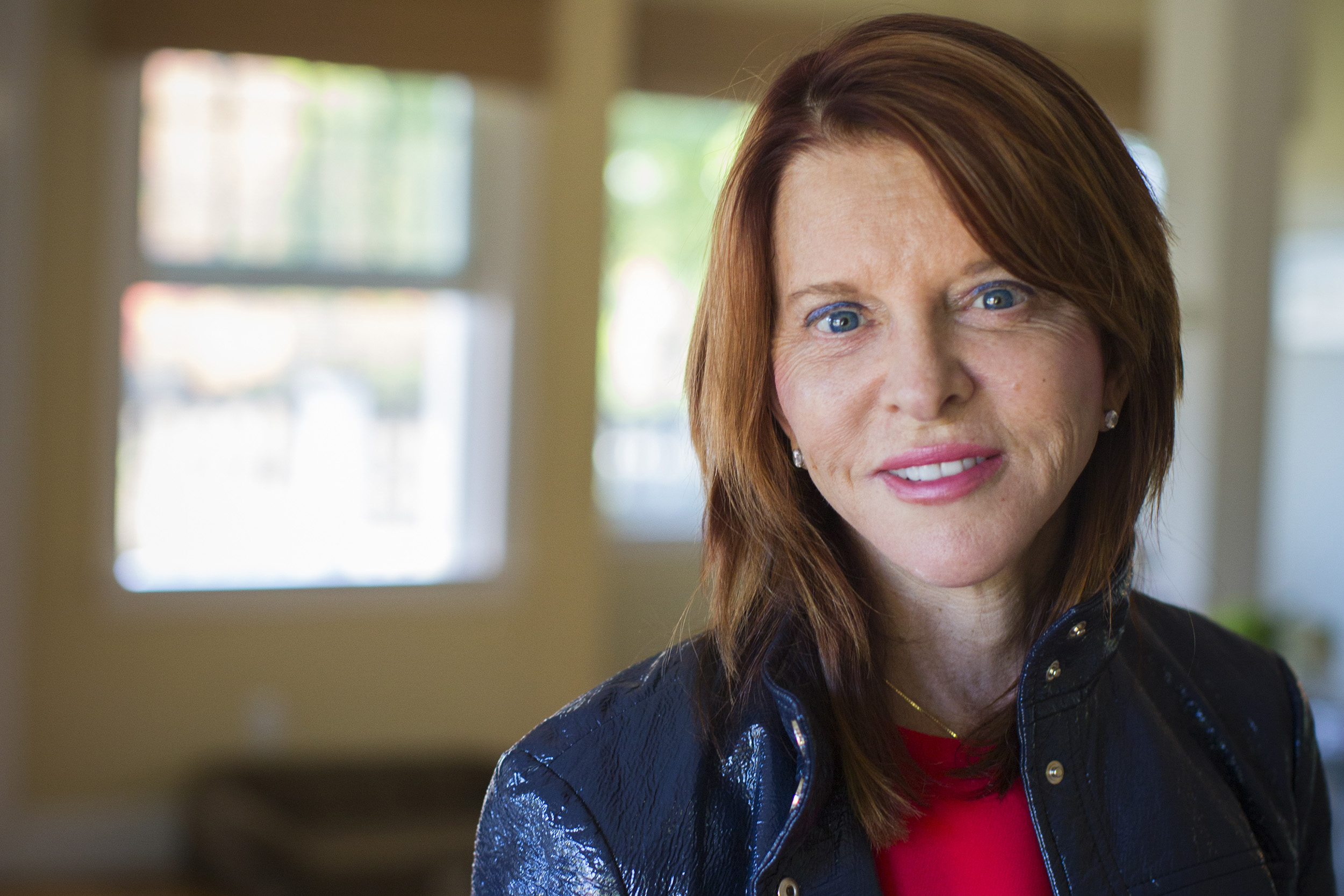
“He has demonstrated a deft ability to pivot and improvise as the circumstances of the crisis shift,” historian Nancy Koehn said of Zelensky.
File photo by Stephanie Mitchell/Harvard Staff Photographer
GAZETTE: What about Zelensky?
KOEHN: Seen from the perspective of one who studies crisis leadership, he has been extremely effective. He is navigating point-to-point with a clear end in sight — to turn back the Russian invasion and protect Ukraine’s independence. He has demonstrated a deft ability to pivot and improvise as the circumstances of the crisis shift. He is communicating brilliantly with his own people and citizens across the world, seemingly getting better as the days pass. He is using established channels — and undoubtedly back-door ones — to talk to leaders around the world and enlist their support, aid, and resources. Like other world-class crisis leaders, he understands that it is critical that he offer his stakeholders a combination of brutal honesty about the difficulties and obstacles Ukraine faces, and credible hope about the commitment that Ukrainians bring to the table to do this and the resources they will harness in this effort. Then add in the emotional awareness and moral clarity that Zelensky uses, again and again, to explain to the rest of the world what is happening to his nation and people. And his personal bravery and unshakable commitment to beat back Putin’s aggression, even in the face of great odds, are not only inspiring to millions of others, they are also a source of real personal power for the leader himself.
After more than two decades of rising threats to democracy, increasing concentrations of wealth and power among a small number of global elites, and a variety of high-stakes crises — from climate change to COVID — most people are disillusioned by most leaders, who have generally kicked the can down the road on these and other pressing issues. Then we watch and listen to Zelensky, and we remember what real leadership is.
GAZETTE: Are there broader takeaways from the contrast between the two leaders?
KOEHN: Putin teaches us that if the international community is willing to allow geopolitical thuggery in exchange for short-term material gain, such as access to fossil fuels, much of the world — first and foremost right now, millions of ordinary Ukrainian men, women, and children — will pay a terrible price for this bargain. It is time for all of us to recognize three things now: First, the long game of international stability, the rule of law, and democracy — and the ongoing refusal of too many leaders to own this and educate their citizens about this — has now become the short game of global survival and possibility. Second, if COVID could not teach us that the fate of each of us is inexorably bound up with the fate of the community, may we see this now in the war Russia is making on Ukraine. Third, there is no time to waste in calling our leaders to account in becoming better stewards of our countries and our interdependent futures.
Zelensky helps us see that courageous leadership is alive and well on the global stage. His work on behalf of his country is raising the bar, not only for other national leaders, but for many ordinary people, who see with new clarity and focus what right — and, by contrast, wrong — look like from those in power. The thoughtfulness, ingenuity, and strategic deftness of what he is communicating and doing are inspiring countless young men and women around the world to take up a worthy purpose and lead.



